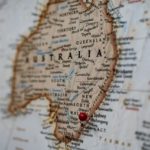Many people who follow international finance are aware of the tremendous investment growth possibilities that exist in some of the West African nations and in the CIS (Commonwealth of Independent States) countries, a group of nine Russian-led states that were formerly part of the Soviet Union. For the record, these countries are Armenia, Azerbaijan, Belarus, Georgia, Kazakhstan, Kyrgyzstan, Moldova, Russia, Tajikistan, Turkmenistan, Ukraine, and Uzbekistan.
While a number of European investors are active in the Russian, Kazakhstan and Ukrainian stock markets, some of the investment markets in other CIS countries are not as fully developed, so investments in those countries have been considered high-risk. That said, though, even those countries are emerging quickly, which in some cases is spurring their GDPs to grow in some cases by two digits and giving them full potential to thrive in the future.
Eric Schaer, chairman of Azerbaijan-based Omni World Holdings — a pioneer of investment solutions in the CIS and GCC states in areas of natural resources, tourism and finance — is a recognized expert in international finance and private investment with specific expertise in structured finance.
Having advised investors on more than $2 billion in transactions and led investments in the areas of natural resources, fintech, and education, his experiences in China, SE Asia, GCC, CIS, and East Africa have demonstrated to him that CIS and West Africa are indeed fertile ground for investors.
“There were many financial issues in CIS countries a few years ago, but the markets are rebounding,” he said. “Uzbekistan has more than 34 million citizens, making it the largest population in Central Asia. The nation also has rich reserves of natural resources and a pretty strong infrastructure. In my opinion, the nation has the potential to become one of the strongest economies in the post-Soviet area.”
It’s an excellent point. Uzbekistan has demonstrated stable economic development in recent years, and its leadership continues to implement major economic reform policies targeted at boosting growth. “By modernizing state-owned monopolies,” says Eric Schaer, “which do exist in several sectors, and creating a supportive climate for direct investment by both private and foreign entities, the country is positioning itself well for growth.”
He notes that there are myriad opportunities for investment in tech companies as well. “It’s kind of obvious,” he said. “Some of the CIS countries region have deep experience in developing innovative technology including space-related technology and robotics. Also, the educational system in the CIS countries is very big on teaching STEM (science, technology, engineering, and math), so it continues to prepare students to be the next innovators.”
He added that while there was a bit of a slowdown during the recent COVID-19 epidemic, things are slowly but surely returning to normal, and that investors needn’t have concerns. After all, he said, this region of the world has long been dedicated to pursuing innovation, and that won’t change.
Meanwhile in Africa, it was reported earlier this year that venture funding went beyond $1 billion. West Africa has also been establishing itself as a fintech hub, where there has been a substantial amount of funding taking place.
In Ghana, telecom operator MTN launched a mobile-money based IPO which raised over $200 million. And in Nigeria, payments API company Flutterwave entered into a partnership with Chinese e-commerce company Alibaba to allow African merchants to receive payment from Alipay’s one billion users.
Schaer believes that the nations in West Africa and the CIS countries will continue to grow as potential investment locales. “Twenty-plus years ago, when Mitchell Elegbe founded fintech firm Interswitch in Nigeria on the west side of the continent, it transformed the company into a major fintech hub. When you consider the progress and ongoing movement taking place in the western countries, it seems inevitable that this will be the case too.”
Related Posts












